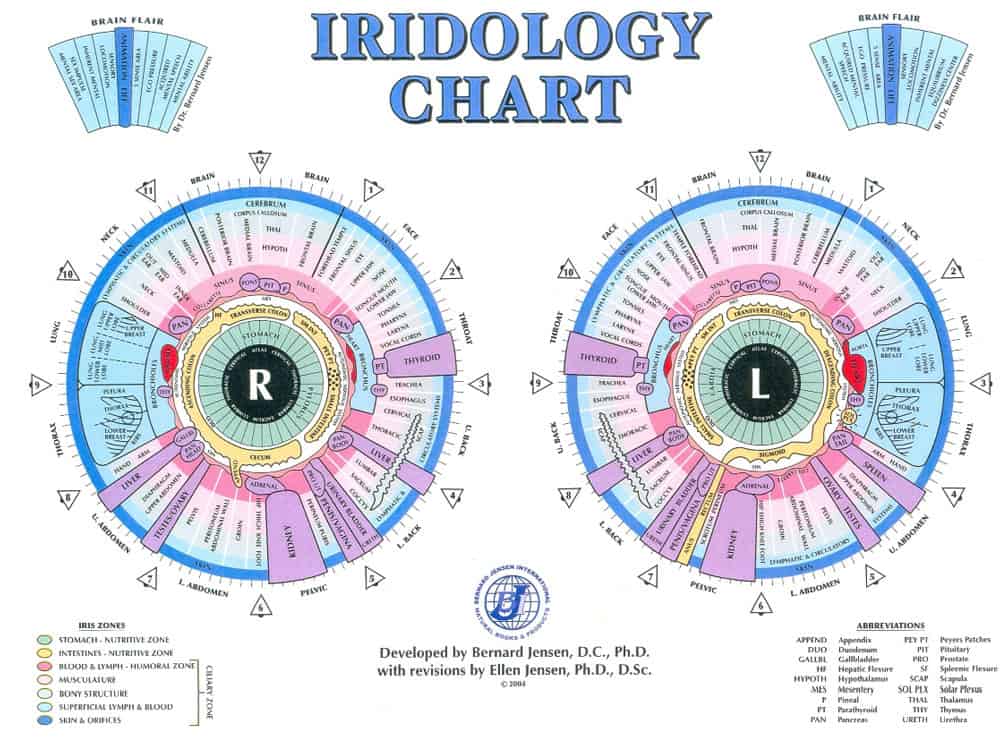Iridology
Iridology Non-Invasive is the examination and analysis of the colored portion of the eye, the iris in order to determined factors that may be important in the prevention and treatment of dis-ease, as well as in the attainment of optimum health.
One of the advantages of iridology is that it can reveal many aspects of an individual’s health. An iris picture may suggest that where there is a problem, more than one organ may be involved or that some emotional or mental element may exist. This can lead to more appropriate advice being given with the person having a choice of treatment, such as seeing a naturopath, chiropractor or other natural healing professional.
Iridology affirms the uniqueness of each individual and the power of the individual to manage his or her own health. Among the five billion human inhabitants on Earth, not one has irides identical to yours, not just the colors, but the myriad structural variations that can be viewed in each iris (and no two are the same) are the genetically determined evidence of your uniqueness. Your irides belong to you, and the information they hold is yours. Your irides offer approximately ten times greater security of identification than your fingerprints.
Iridologists believe that treatment and lifestyle strategies for individuals must be based on accurate assessments of the whole person and the factors that have shaped their lives. Iridology, therefore, has at its heart the humanistic and holistic traditions of medicine and healing, in which the integrity of the whole person is observed and honored.
The earliest historical diagnostic practice of iridology is in Ancient Egypt. A museum in Cario, Egypt has a display of painted ceramic eyeballs, complete with markings on the iris and sclera (whites of the eyes). The earliest naturopathic doctor, Hippocrates studied in Egypt and practiced, maintained and taught the naturalistic and wholistic approach to self-care.
Iridology is now well established as a complementary health discipline in many countries. Due to its special characteristics, it has the potential to cross several boundaries specified by the modern insistence upon “evidence-based” science. From the detailed physiology of the medical model, through the approach of of the naturopathic schools, to the broad-ranging skills of holistic practitioners, iridology has something to offer everyone who is interested in discovering the underlying dynamics of health and dis-ease.
The “father of medicine” Hippocrates, said, “It is more important to know, what sort of person has a dis-ease than to know what sort of dis-ease a person has.”
William Shakespeare once said “The Eyes are the window to your soul”


